Land-Scape Land-Form Urban-Form
Harvard University Graduate School of Design
Department of Landscape Architecture
Landscape Architecture III
Core Studio
Department of Landscape Architecture
Landscape Architecture III
Core Studio
Teaching Faculty: Javier Arpa Fernández, Fionn Byrne, Bradley Cantrell, Sergio Lopez-Pineiro, David Mah, Chris Reed (coordinator)
Description:
Contemporary cities are growing at unprecedented rates, and this growth brings with it significant social, economic, and environmental challenges. Climate change, environmental impacts (and their public health implications), social and demographic frictions, economic and planning policy all heavily influence and are shaped by the sheer numbers of people living in or moving to cities around the world.
To this day, cities have been the sources of innovation, creativity, diversity, social exchange, and the development of distinct cultures. They contribute disproportionately to invention, entrepreneurship, and the development of progressive policies that are drawn from a wide range of disciplines. It is in the city that ideas are hatched, are tested, and are implemented and refined over time. It is in the city that people can experience diversity, social and cultural richness, and a panoply of sensations and heavily charged atmospheres.
Landscape offers a distinct starting point for the project of city-making. On the one hand, landscape has the ability to address and integrate the multiple environmental, infrastructural, and social systems and scales that are in play—and can uniquely absorb and hybridize these multiple functions and initiatives in ways that architecture or planning alone cannot. On the other hand, landscape offers operational frameworks and modes of working that emphasize dynamics, change, and improvisation/adaptation—mechanisms that are as much in play in ecosystems as they are in cities.
This studio will use landscape both as medium and as mechanism as a starting point for testing and prototyping ideas about urban form and city-making. It will emphasize the connections and hybridizations of urban and environmental systems and dynamics, rather than understanding them as oppositions. And it will utilize working methodologies that privilege experimentation and iterative modeling—of playful and critical prototyping—that could suggest pathways toward new landscape-based approaches to urban form.
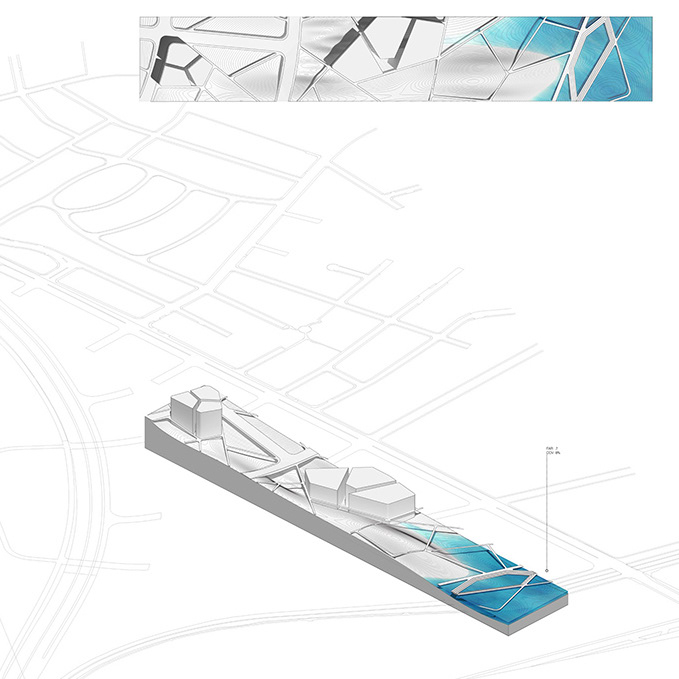
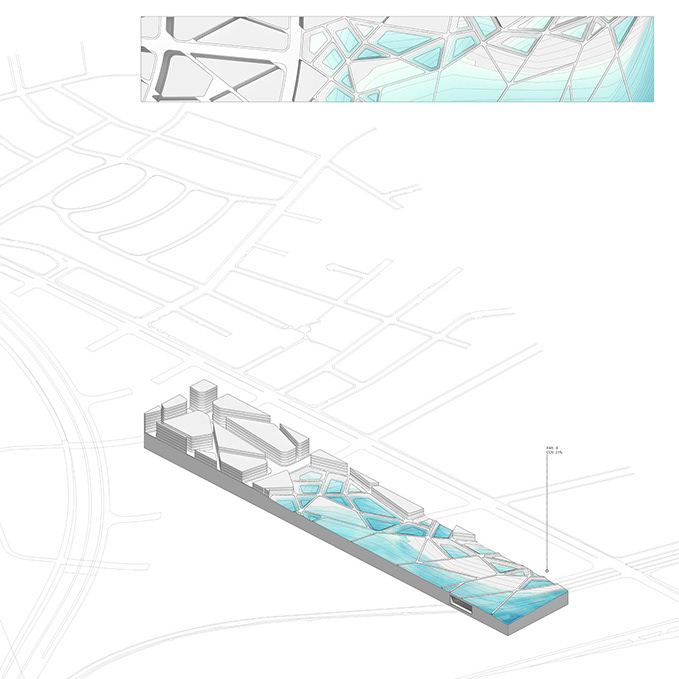
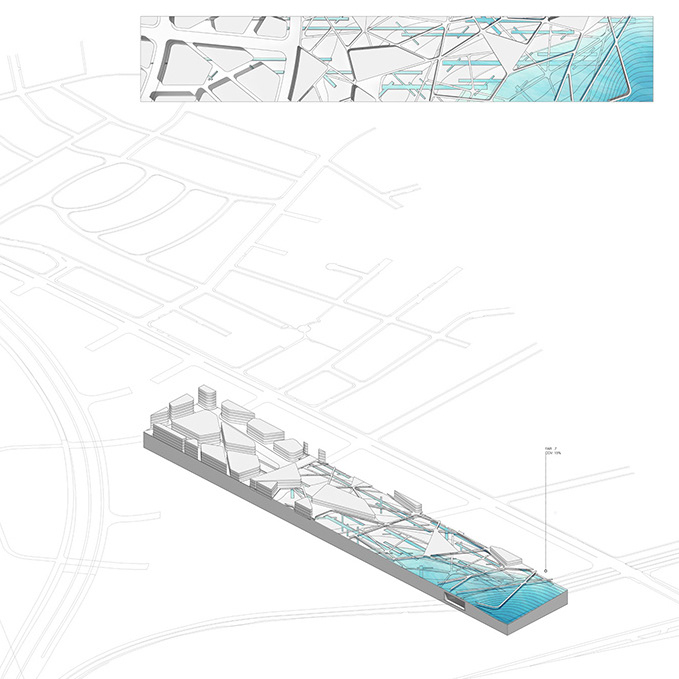
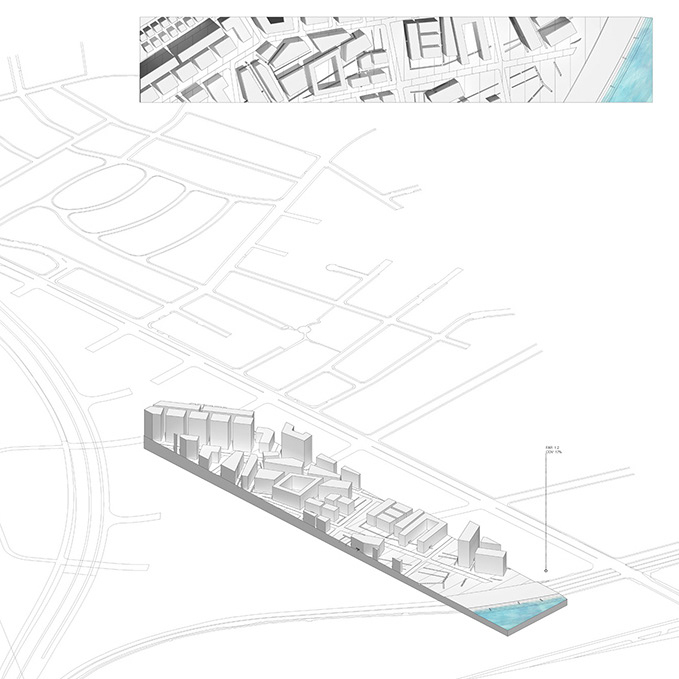
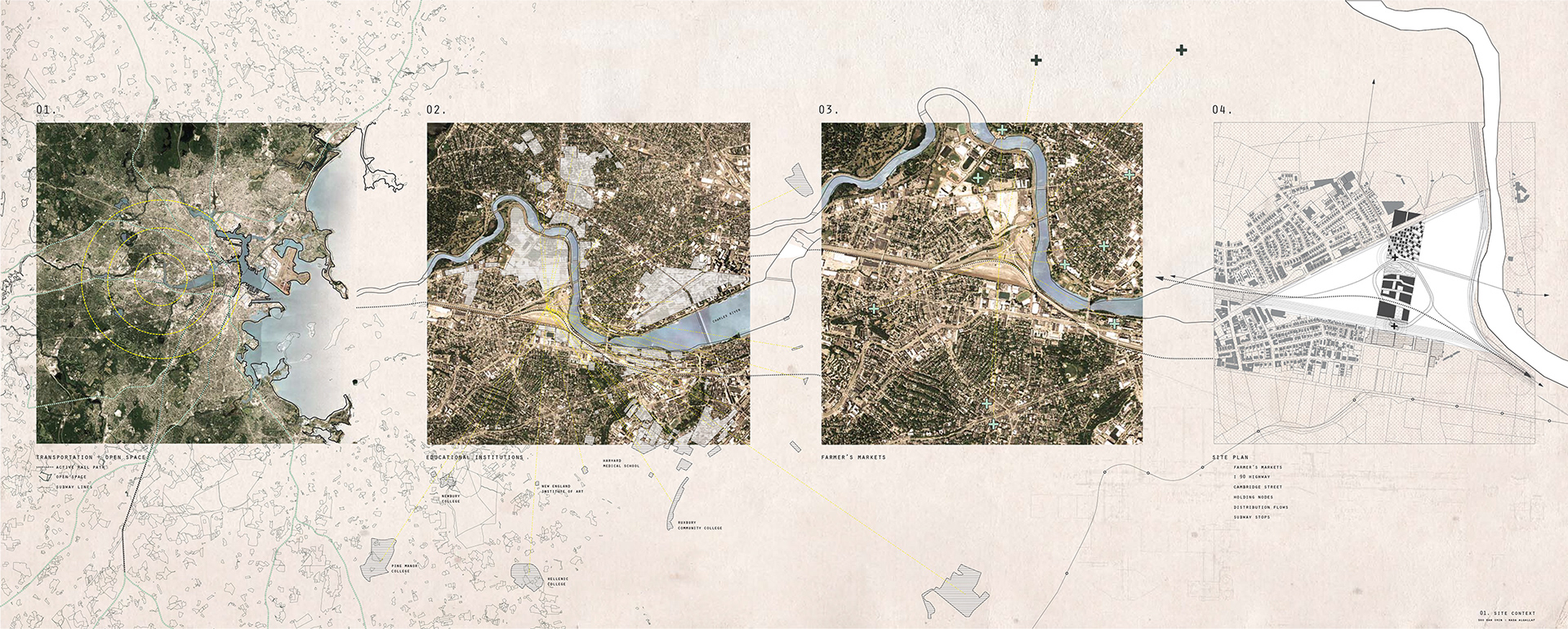
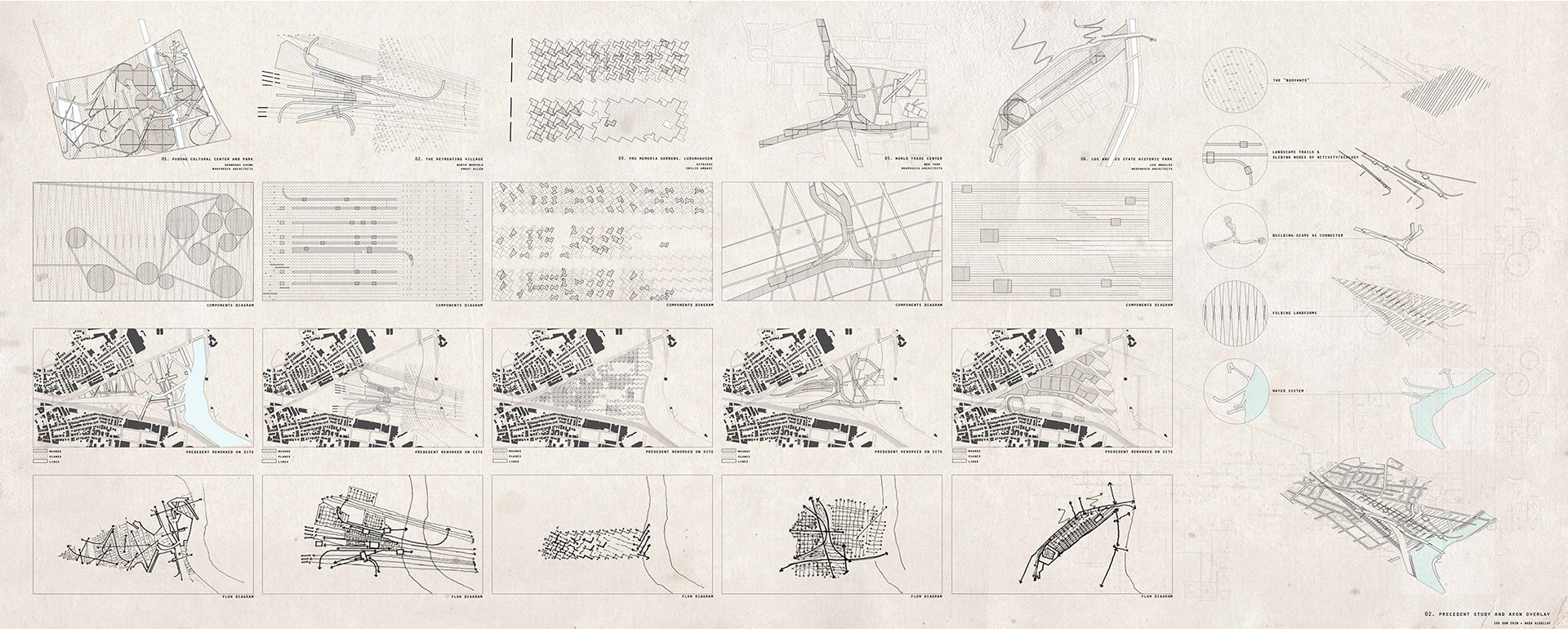
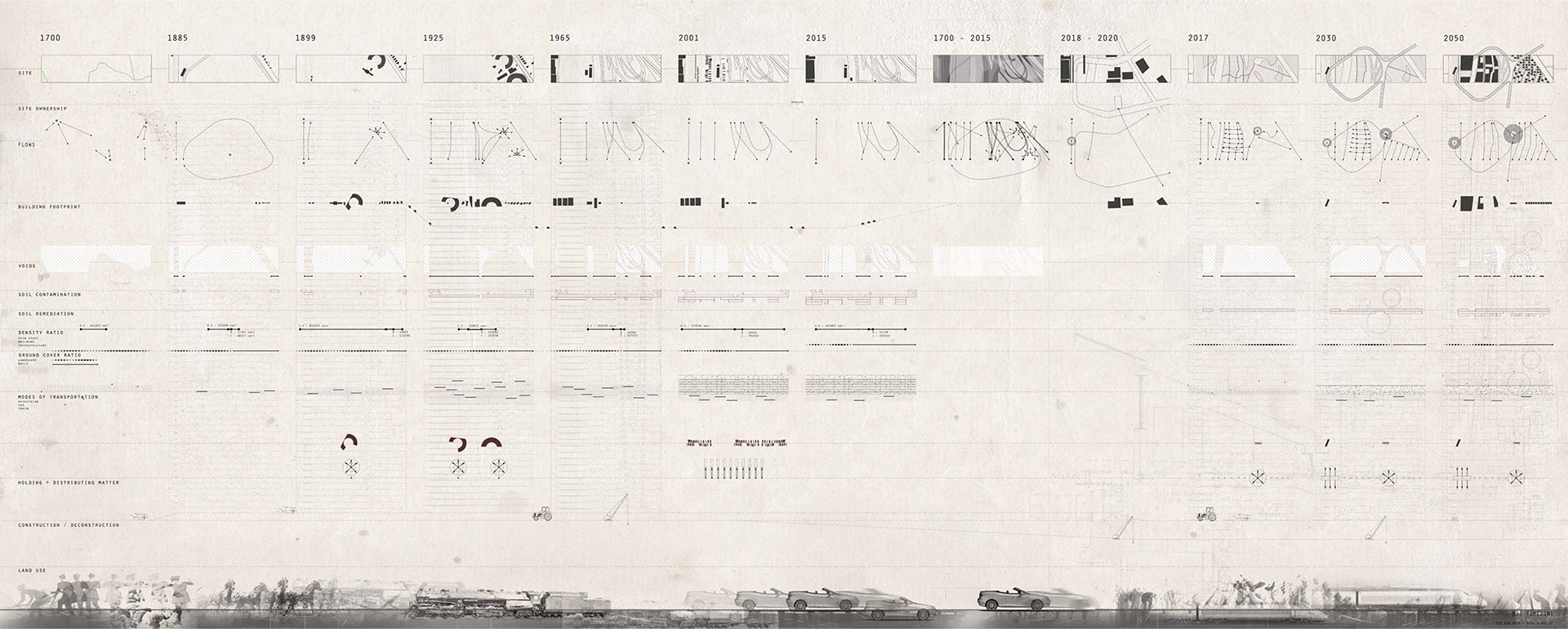
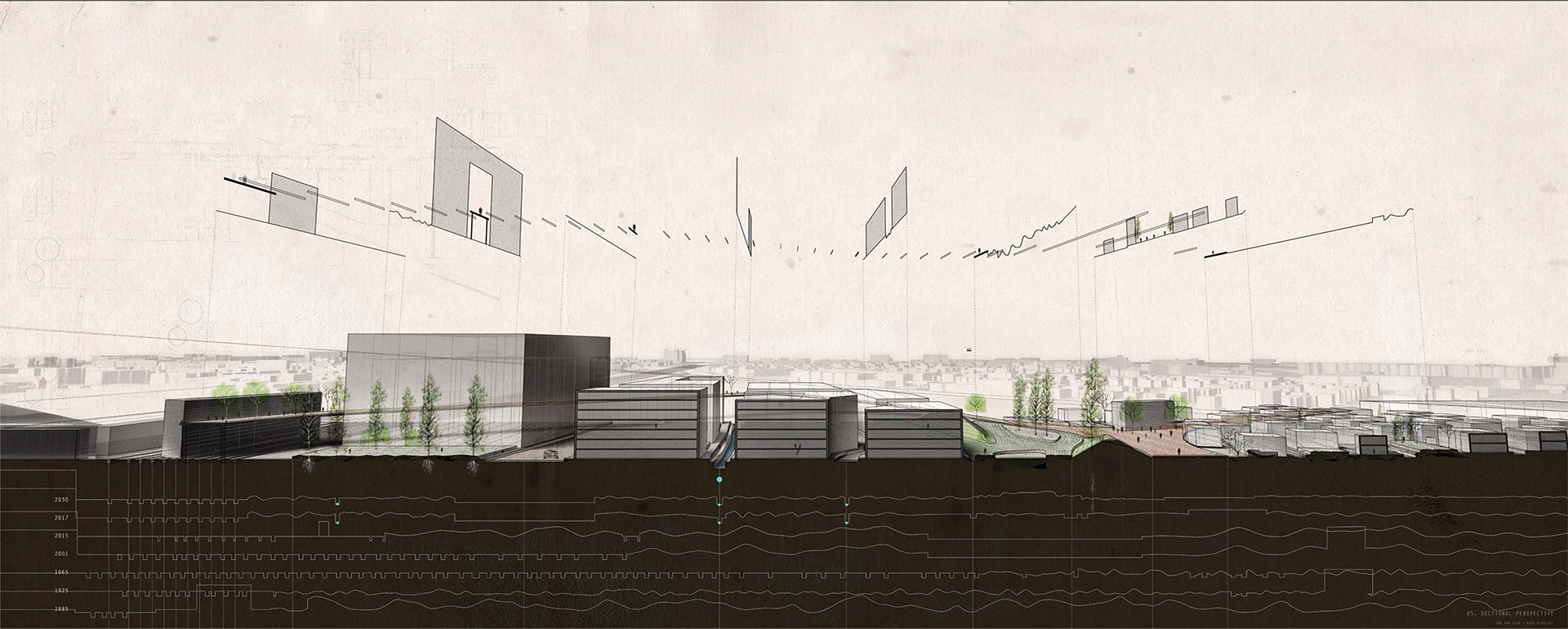
CREDITS
1,2,3,4. Rebecca Liggins + Andrew Younker, 5,6,7,8. Nada AlQallaf + Soo Ran Shin.